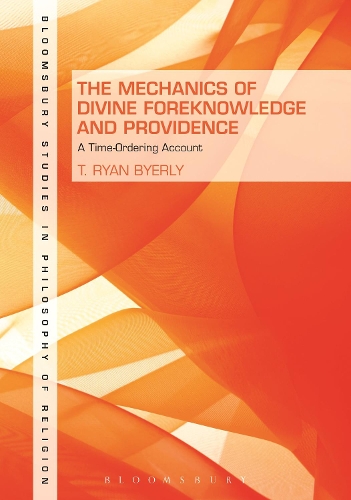
The Mechanics of Divine Foreknowledge and Providence: A Time-Ordering Account
(Hardback)
Available Formats
Publishing Details
The Mechanics of Divine Foreknowledge and Providence: A Time-Ordering Account
By (Author) Dr. T. Ryan Byerly
Bloomsbury Publishing PLC
Bloomsbury Academic USA
23rd October 2014
United States
Classifications
Tertiary Education
Non Fiction
211
Physical Properties
Hardback
144
Width 152mm, Height 229mm
367g
Description
How exactly could God achieve infallible foreknowledge of every future event, including the free actions of human persons How could God exercise careful providence over these same events Byerly offers a novel response to these important questions by contending that God exercises providence and achieves foreknowledge by ordering the times. The first part of the book defends the importance of the above questions. After characterizing the contemporary freedom-foreknowledge debate, Byerly argues that it has focused too narrowly on a certain argument for theological fatalism, which attempts to show that the existence of infallible divine foreknowledge poses a unique threat to the existence of creaturely libertarian freedom. Byerly contends, however, that bare existence of infallible divine foreknowledge cannot threaten freedom in this way; at most, the mechanics whereby this foreknowledge is achieved might so threaten human freedom. In the second part of the book, Byerly develops a model for understanding the mechanics whereby infallible foreknowledge is achieved that would not threaten creaturely libertarian freedom. According to the model, God infallibly foreknows every future event because God has placed the times that constitute the history of the world in primitive earlier-than relations to one another. After defending the consistency of this model of the mechanics of divine foreknowledge with creaturely libertarian freedom, the author applies it to divine providence more generally. A novel defense of concurrentism is the result.
Reviews
T. Ryan Byerly offers a refreshingly original account of how divine foreknowledge and providence might be achieved. This is an important contribution to philosophical theology and metaphysics which should be studied and discussed widely in coming years. * Yujin Nagasawa, Professor of Philosophy, University of Birmingham, UK *
Byerly provides an insightful overview of the argument for theological fatalism, argues (rightly, I believe) that it cannot succeed unless divine foreknowledge entails causal determinism, and proposes that God's ordering of times can account for his infallible foreknowledge while leaving human freedom intact. This is a novel approach to a well-nigh intractable problem and should command the attention of anyone with a serious interest in the dilemma of divine foreknowledge and human freedom. * David P. Hunt, Professor of Philosophy and Department Chair, Whittier College, USA *
Several things impress here: First, the ingenuity and clarity of the argument; second, the fact that Byerly and other analytic philosophers are engaging religious topics seriously. Even those (like me) who prefer to work in a different idiom, and those are not entirely persuaded, can be grateful for the rigor of their contributions. -- Peter Leithart * First Things *
Author Bio
T. Ryan Byerly is Assistant Professor of Philosophy, Regent University, USA.
